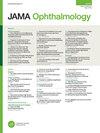Real-time polymerase chain reaction for diagnosing acyclovir-resistant herpetic keratitis based on changes in viral DNA copy number before and after treatment.
引用次数: 8
Abstract
Acyclovir (ACV) is a specific anti– herpes simplex virus (HSV) and anti–varicella-zoster virus agent for herpetic infection; topical ACV ointment, 3%, has been the treatment of choice for HSV infection in Japan. Based on the widespread use of ACV, in some cases of recurrent herpetic keratitis, the disease was refractory to topical ACV treatment , which was previously reported as ACV-resistant herpetic kerat i t i s . 1 3 Convent ional ly , definitive diagnosis of an ACVresistant HSV keratitis requires a laboratory examination of viral cultures following in vitro drug sensitivity testing, which is generally difficult and complicated because of the low rates of replication of these viruses and the small number of ocular samples. A rapid, simple, and accurate method of diagnosing drug-resistant herpetic infection remains to be established. Realtime polymerase chain reaction (PCR) is a highly sensitive method for the detection and quantification of pathogens. We report 4 cases of ACV-resistant HSV keratitis using real-time PCR analysis; these cases were diagnosed based on changes in the viral DNA copy numbers before and after ACV treatment.基于治疗前后病毒DNA拷贝数变化的实时聚合酶链反应诊断无环韦耐药疱疹性角膜炎
本文章由计算机程序翻译,如有差异,请以英文原文为准。
求助全文
约1分钟内获得全文
求助全文

 求助内容:
求助内容: 应助结果提醒方式:
应助结果提醒方式:


